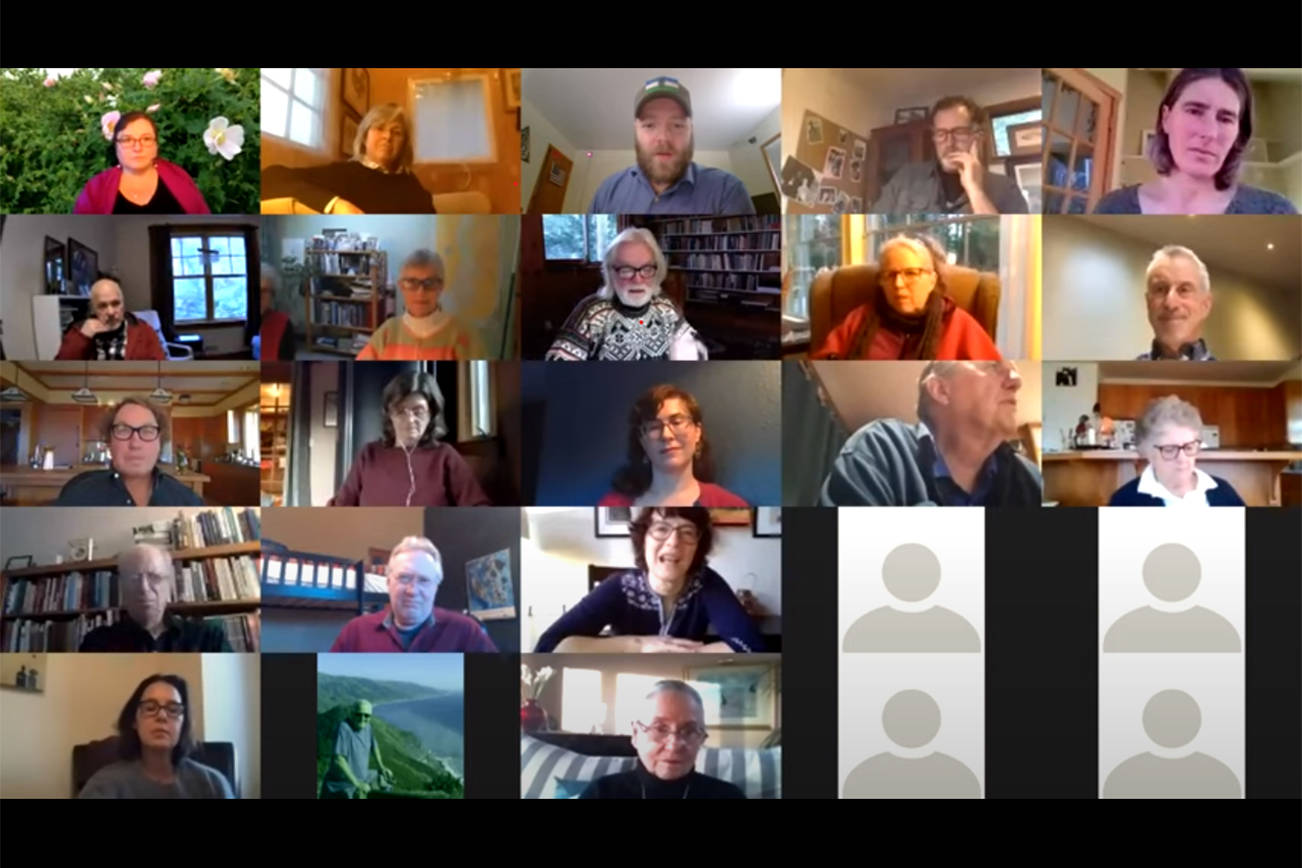Submitted by Ande Finley
On December 5th, Transition Lopez Island hosted “Continuing the Journey,” its virtual follow up event to 2019’s Fossil Free by ‘33 launch. In spite of the nice weather, seventy people hunkered over their computers to get updated on the campaign’s progress and continue the brainstorming and visioning to bring the county one year closer to the stated goal.
Kicking off the first session was the launch of “Eating Locally and Seasonally: A Community Food Book for Lopez Island,” written by Henning Sehmsdorf and Elizabeth Sympson. Given everything we’ve learned this year about the fragility of our food system, this is a timely book with 385 recipes, seasonal charts, and instructions on canning, fermenting, bread baking, and cheese making. Out of their commitment to a sustainable future, the authors will be offering free downloadable copies. Hard copies will be available through local bookstores and libraries. To pre-order your copy, visit the Transition Lopez Island website (transitionlopezisland.org).
Announcing major steps forward came next. Because of a full grant, Lopez is getting an electric school bus! To help raise the remaining $25,000 dollars for infrastructure costs, Transition is launching its “Close the Gap” campaign. The Plastics/Consumerism Team presented information about the new Washington State plastic bag ban effective Jan. 1, 2021, and efforts by groups such as Plastic Free Salish Sea to reduce consumption and properly dispose of plastics.
Social innovator Vicki Robin’s thought-provoking keynote talk centered on recent interviews with “cultural scouts” from her What Could Possibly Go Right? project. Vicki enumerated how history, frameworks, stories, feelings, and power matter when we are evaluating our place within the pandemic and other critical current issues.
Next, participants chose between two concurrent sessions. Eating is a Radical Act brought together community organizations, stores, restaurants, and farmers to dialogue about how to change consumer habits to encourage more support for local food. Panelists in Electrifying Our Future Now discussed opportunities for community solar and individual rooftop installations, OPALCO rebate and incentive options, and progress made in the electrification of our island transportation network.
In the final Policy Makers Roundtable, state and local officials were asked to dig deeper into what policies would support the most resilient, sustainable future in the San Juans. State Senator Liz Lovelett explained two of her sponsored bills that will directly affect our county — a carbon fee that would tax emissions to be used on immediate economic recovery and a tax on short-term internet-based rentals that would come back to local jurisdictions to fund affordable housing.
Kevin Ranker introduced the New Deal San Juan Islands project, created to galvanize the progressive voting bloc in our county and move our local council to pass ordinances in the areas of climate, justice, agriculture, plastics, and housing that reflect islanders’ values.
Cindy Wolf and Jamie Stephens both spoke about the San Juan County Council collaborating more, thinking outside the box and building on what has worked as we emerge from Covid. Brian Silverstein commended Orcas Power and Light Cooperative for its successful efforts to support stay-at-home internet schooling and spoke about the struggle to apply incentives and regulations effectively. Faith Van de Putte praised our community during COVID for strengthening the County’s local food system by engaging farmers to grow and restaurants to process food to feed residents in need.
The success of this four-hour conference exceeded the organizing group’s expectations. Be looking for shorter workshops over the winter months on each of the Fossil Free by ‘33 areas of interest: agriculture; food and water; plastics and consumerism; and energy and transportation. Transition Lopez Island invites you to actively engage to reach this ambitious goal by 2033.




